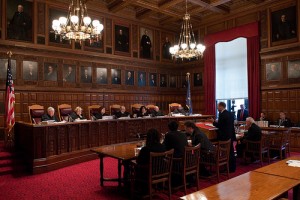The Supreme Court accepts all kinds of cases involving states and local governments. Town of Chester v. Laroe Estates involves a long, complicated story and legal issue.
Steven Sherman sued the Town of Chester alleging an unconstitutional taking as the town refused to approve a subdivision on plots of land Sherman intended to sell to Laroe Estates. Laroe Estates advanced Sherman money for the land in exchange for a mortgage on the property. Sherman defaulted on a loan to a senior mortgage holder who foreclosed on the property.
Laroe Estates, claiming to be the owner of the property, sought to “intervene” in the takings lawsuit. The Federal Rules of Civil Procedure grant the right to intervene to non-parties who “claim an interest relating to the property or transaction that is the subject of the action, and is so situated that disposing of the action may as a practical matter impair or impede the movant’s ability to protect its interest, unless existing parties adequately represent that interest.”
The district court concluded that Laroe Estates lacked Article III “standing” under the U.S. Constitution to assert a takings claim against the Town. Laroe Estates argued that it was a “contract vendee” of the Sherman property. According to the district court, under longstanding circuit court precedent “contract vendees lack standing to assert a takings claim.”
The question the Supreme Court will decide in Town of Chester v. Laroe Estates is whether Laroe Estates may intervene in this case even though it lacks standing.







